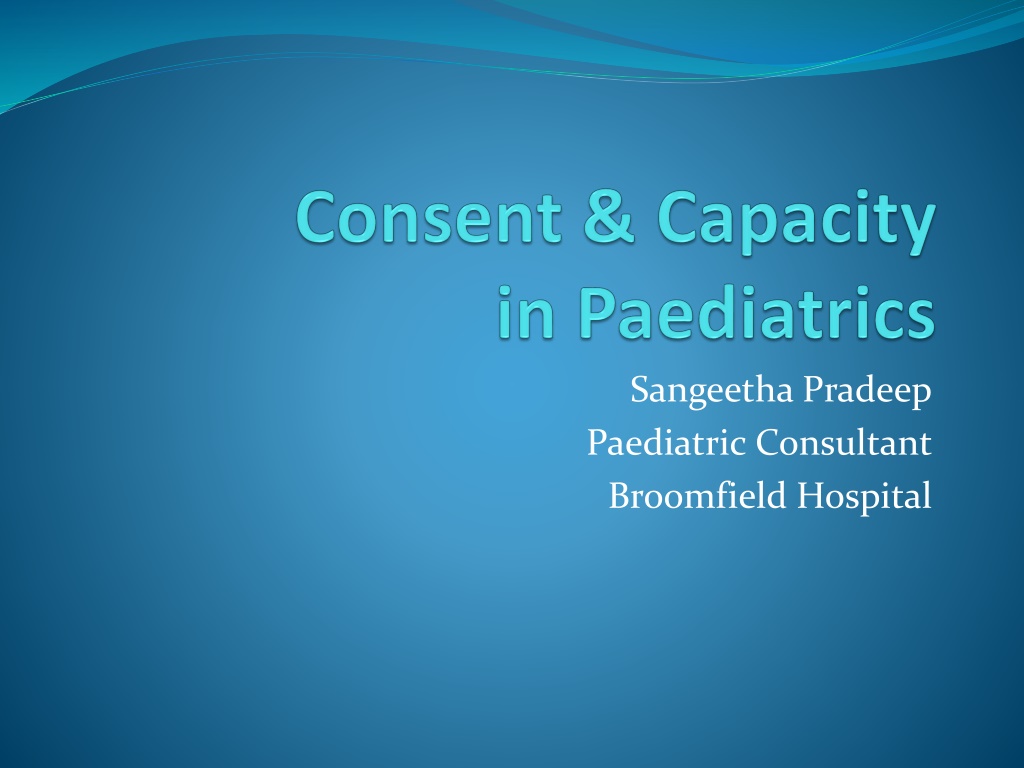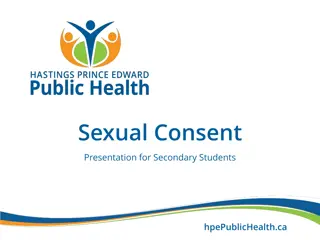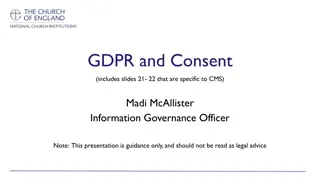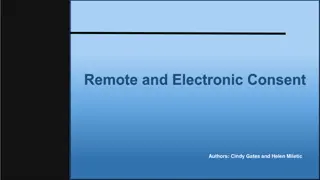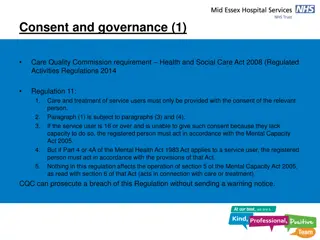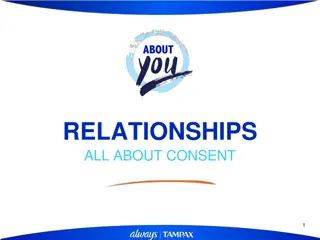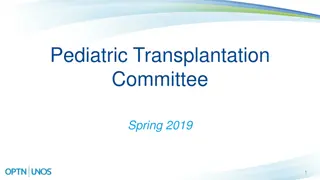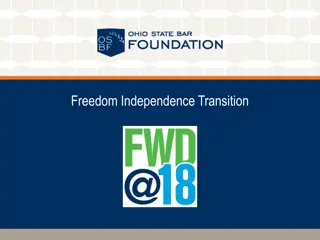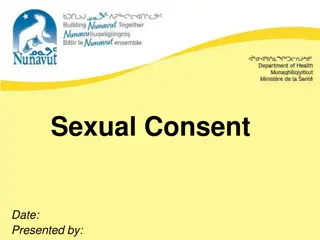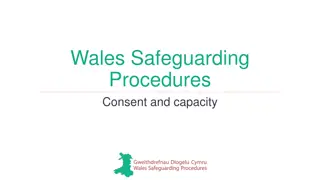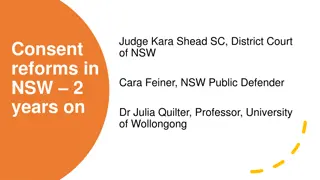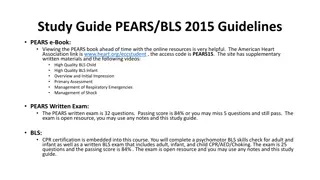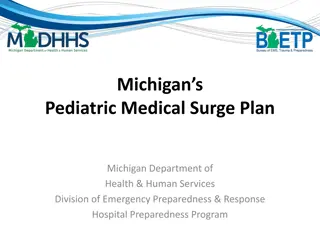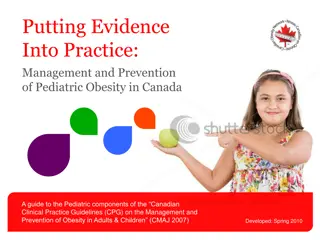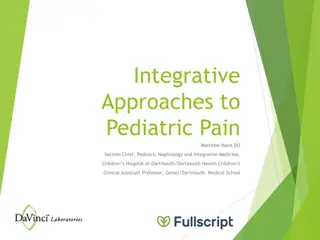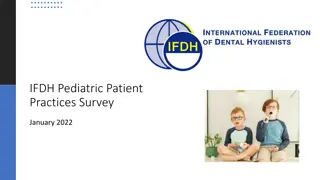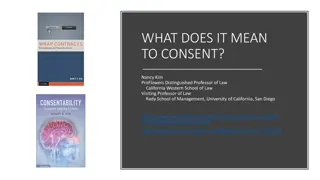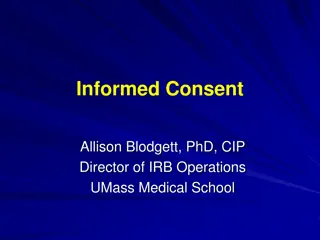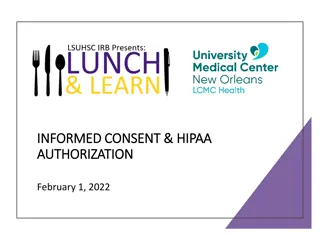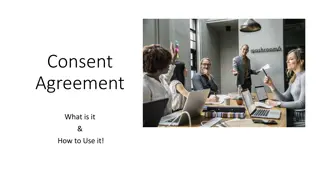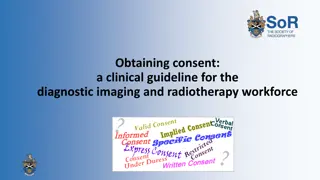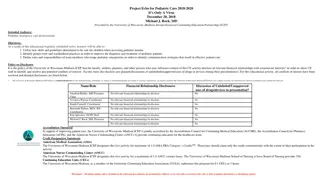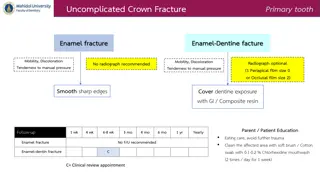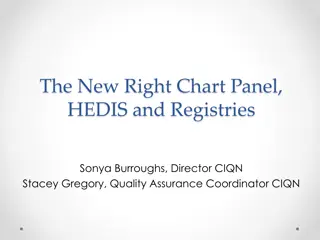Understanding Consent in Pediatric Care
Explore the nuances of consent in pediatric care, including when it is needed, who can give it, and what happens if a parent refuses. Delve into topics such as the capacity to consent and determining best interests, and understand the role of children in the decision-making process.
Download Presentation

Please find below an Image/Link to download the presentation.
The content on the website is provided AS IS for your information and personal use only. It may not be sold, licensed, or shared on other websites without obtaining consent from the author. Download presentation by click this link. If you encounter any issues during the download, it is possible that the publisher has removed the file from their server.
E N D
Presentation Transcript
Sangeetha Pradeep Paediatric Consultant Broomfield Hospital
Overview What is a consent? When is the consent needed? Can children consent for themselves? Who can get consent? Who can give the consent? What if a parent refuses to give the consent What is capacity? How is the capacity assessed? What if no capacity to consent? Determining best interests Capacity can change Examples
What is a consent Understand what s going on with you Good things (benefits)/ Bad things (risks) Consent- Agree, say yes to
When is the consent needed Implied consent Verbal consent Written consent- accompanied by information form Con sent should be voluntary
Can Children consent for themselves? Legal age for a child Can 16year old Consent? What if 16year old refuses to consent? Competent young child What if competent young child refuses? Can parents over-ride- over 16/ Under 16
Who can get consent? Ideally- person doing the procedure Capable of performing procedure Specially trained to seek consent for the procedure
Who can give the consent The child The child's mother or father The child's legally appointed guardian A person with a residence order concerning the child Local authority designated to care for the child A local authority or person with an emergency protection order for the child
What if a parent refuses to give the consent? Decision can be overruled by the courts By law, only need 1 person with parental responsibility to give consent. In an emergency, treatment can proceed without consent.
What is capacity? Capacity means the ability to use and understand information to make a decision, and communicate any decision made. A person lacks capacity if their mind is impaired or disturbed in some way, which means they're unable to make a decision at that time. Examples- Neurological damage/ mental health disorder
How capacity is assessed This will usually be done by an appropriately trained and experienced healthcare professional who's either: (recommending the treatment or investigation involved in carrying it out ) decision will be accepted, even if one lose capacity at a later stage.
What if no capacity to consent? Seek family member/ person appointed by the individual when he/she had the capacity. Parental consent to be sought, if parents refusing, consider best interests, approach court if needed.
DETERMINING BEST INTERESTS considering whether it's safe to wait involving the person in decision as much as possible include religious or moral beliefs
Capacity can change A person's capacity to consent can change. People can be considered capable of deciding some aspects of their treatment but not others. Example: a person with severe learning difficulties Some people with certain health conditions may have periods when they're capable and periods when they're incapable. Example: a person with schizophrenia
Examples 16 year old refusing blood transfusion (treatment planned because Hb- is 6g/dl), jehovah switness 16 year old refusing blood transfusion (treatment planned because RTA, blood loss), jehovah switness 12 year old moderate to severe dehydration, refusing iv fluids 16 year old with severe cerebral palsy- refusing for PEG change 12 year old with Anorexia, refusing to eat
